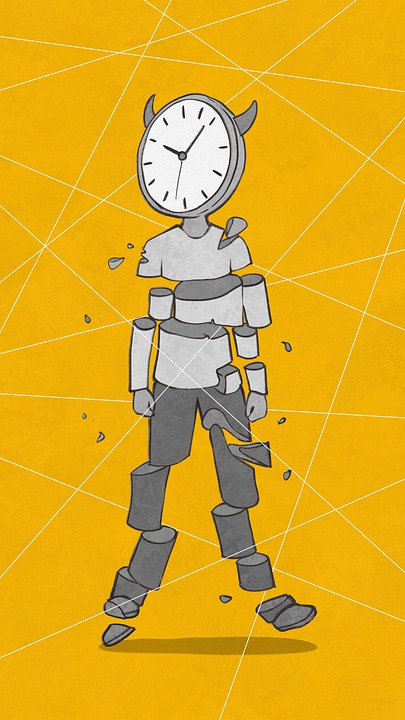Warped time perception during the pandemic
Was it a year, a day, or a millennium? Science offers clues to why it feels like all of the above.

I came across a Vox article about how our relationship with time was altered by the pandemic. To cap off the year, it feels fitting to reflect on this theme.

The pandemic has brought two types of changes affecting our perception of time:
- we’ve lost our usual markers of time to divide up days, weeks, and months
- we’ve lost our sense of the future due to the uncertainty of when it will end
Let’s explore what psychological effects each of these might have on memory and other cognitive functions.
Loss of usual markers of time
Before the pandemic, many of us had routines that would segment our lives.
“We wake up, take the kids to school, commute to work, take lunch breaks, go to the gym, have dinners out. Now, though, any activities we once might have participated in outside the home have been abruptly removed, and we’ve lost the sense of time these seemingly mundane markers once provided.”
Without these markers, thinking back to the past 9 months can feel like a blur even though each individual day may have felt torturously long. It turns out that our retrospective perception of time, or the subjective experience of looking back, is closely related to our memory.
This isn’t intuitive, but the evolutionary purpose of memory is predict the future. It allow us to draw on past events, experiences and emotions to construct plausible scenarios of future events and act accordingly to increase our chances of survival.
To bring up a silly example - we know not to touch a hot stove because we’ve likely made the mistake in the past and our brains cemented the memory to dissuade us from doing it again. Whether or not to capture a long-term memory depends on its usefulness to us, whether physically or socially.
Since most people didn’t have many novel experiences this year, our brains have less useful information to represent in memory relative to past years. As a result, time seems to pass quickly in retrospect. Hopefully you took a few photos to fill in the gaps.
Loss of our sense of future
Perhaps more disorienting has been the uncertainty around the future. To reiterate, time perception supports the brain’s most important function: predicting the future.
“Covid-19, and its resulting effect on our lives, has stifled this instinct. Even thinking about the future conjures only a strange, fuzzy block because we know neither when this will end nor how different our world will look when it does.”
A major source of stress for a lot of people is not being able to plan ahead and reduce the ambiguity of what the future might hold for them. It’s natural to want to feel in control and have your life figured out; it’s one of our most inherent skills and desires.
An interesting parallel is the experience of schizophrenic patients, who commonly report a disturbance in the continuity of temporal experience. Time seems to stand still for them, and with that, it feels like the “self” is stuck in the present with all future perspective vanishing.
This might be hard to wrap your head around, but “the consciousness of time and consciousness of self co-create each other to construct our experience of who we are.” These patients cannot integrate the past, present, and future and so their continuity of self is shattered.

I’m not trying to say that our experiences during the pandemic compare to that of schizophrenic patients, but we could better understand the existential dread that hangs over us through this lens. Our experience of self relies in part of our ability to anticipate the future, which is disrupted by a high degree of uncertainty. What we’re left with is the past and present, which is highly unnerving to our brains. This leads to the subjective experience of time passing very slowly in the moment.
—
Curious for more? I’ve previously written about time — how our time perception is linked with our experience of self and why time feels faster with every year.
Friday Brainstorm Newsletter
For more, join 300+ curious people subscribed to the Friday Brainstorm newsletter. It’s one email a month with the most interesting ideas I've found related to science and health.